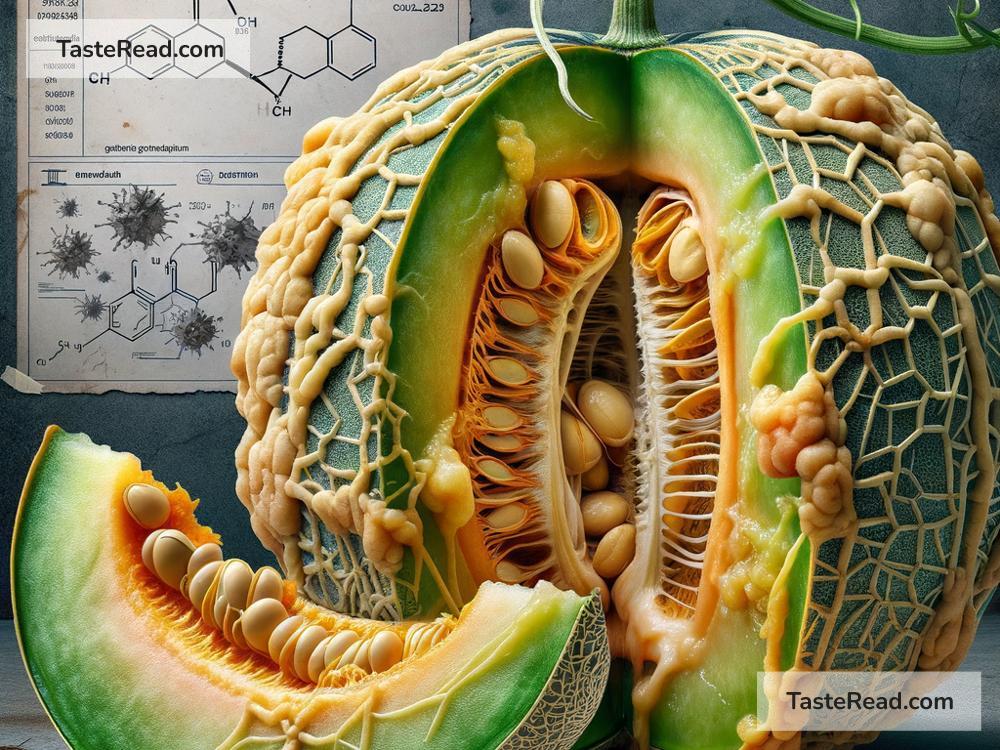The Science Behind the Bitterness in Overripe Melons
Melons, like watermelons, honeydew, and cantaloupe, are loved for their sweet and refreshing taste. They make for a perfect summertime snack and are packed with nutrients like vitamins, antioxidants, and water to keep us healthy and hydrated. But sometimes, when a melon is left sitting too long and becomes overripe, it develops a bitter taste that is far from the enjoyable sweetness we expect. So, what causes this bitterness? Is it just the melon “going bad,” or is there some science behind it? Let’s dive into the fascinating chemistry of overripe melons to find out!
What Happens When a Melon Ripens?
Before we understand why melons become bitter, it’s essential to know what happens when they ripen. As melons mature on the vine, their natural sugars increase and their texture softens. This ripening process is driven by enzymes—tiny molecules that break down complex compounds into simpler, sweeter ones.
One of these enzymes, called “invertase,” plays a key role in converting starches into sugar, causing the melon to taste sweet and juicy. Additionally, compounds like esters, aldehydes, and alcohols contribute to the melon’s fruity aroma and flavor.
At the peak of ripeness, all these components come together to create the delicious melon we enjoy. But if left for too long, the melon begins to degrade, and its chemistry changes again—leading to bitterness.
What Causes Melons to Become Bitter?
The bitterness in overripe melons is linked to several factors, mostly related to changes in their chemical makeup over time. Here are the main reasons melons become bitter:
1. Breakdown of Sugars
As melons continue to ripen past their prime, the sugars that made them sweet start breaking down. Enzymes like invertase work overtime, and the balance of sweetness gets disrupted. This breakdown can lead to the formation of bitter-tasting byproducts, such as alcohols or acids.
Additionally, as the melon becomes overripe, bacteria and fungi may start to grow on the fruit. These microorganisms feed on the melon’s sugars, producing waste products like lactic acid, which can contribute to the bitter taste.
2. Production of Cucurbitacins
Melons belong to the cucurbit family, which also includes cucumbers, squashes, and pumpkins. A key characteristic of cucurbits is their ability to produce compounds called cucurbitacins.
Cucurbitacins are natural chemicals that taste extremely bitter. They exist as a defense mechanism to protect the plant from insects and animals. In most edible plants, such as melons, cucurbitacins are present only in small, harmless amounts while the fruit is fresh. However, as melons become overripe, the production of cucurbitacins may increase, leading to bitterness.
In fact, cucurbitacins are responsible for the bitter taste you sometimes experience in cucumbers or certain types of zucchini. When they appear in melons, they make the fruit unappetizing.
3. Oxidation
Oxidation is a chemical process that happens when food is exposed to oxygen in the air. Over time, oxygen causes the compounds in melons to break down. This can lead to changes in flavor, texture, and smell—and sometimes results in bitterness.
For example, the natural oils and aromas in melons, which contribute to their sweet taste, can oxidize and turn into bitter compounds. This is similar to how a sliced apple turns brown and tastes different after being left out for a while.
4. Microbial Activity
When a melon becomes overripe, it becomes more vulnerable to the growth of microbes like bacteria and mold. These microorganisms feast on the melon’s sugars and other nutrients. As they grow, they release chemicals and enzymes that can alter the flavor of the fruit, often making it bitter or even sour.
This is why you should avoid eating melons that have visible mold, soft spots, or an unpleasant smell—these are signs of microbial activity and spoilage.
How Can You Avoid Bitter Melons?
Nobody wants to bite into a melon and be surprised by an unpleasant bitter taste. To avoid this, follow these simple tips:
-
Choose the Right Melon: Make sure to pick a melon at its peak ripeness. It should have a sweet aroma, firm skin, and a slight give when pressed gently.
-
Store Properly: Keep melons at a cool temperature. Once cut, store in the refrigerator in an airtight container to slow down oxidation and microbial activity.
-
Consume Quickly: Eat your melon shortly after purchasing it or cutting it open. The longer it sits, the more likely it is to overripe and become bitter.
-
Inspect for Spoilage: If a melon has mushy spots, an odd smell, mold, or discoloration, it may be overripe or spoiled. Avoid eating it.
Conclusion
The bitterness in overripe melons is not just random—it’s a result of complex biochemical changes happening inside the fruit. Whether it’s the breakdown of sugars, the production of cucurbitacins, or microbial activity, all these factors contribute to the bitter taste.
Understanding the science behind this phenomenon helps us appreciate the delicate nature of melons and reminds us to enjoy them at the right time—when they’re perfectly sweet and juicy!
So next time you’re enjoying a slice of melon, take a moment to savor its ripeness and think about the fascinating chemistry that makes it so delicious—or bitter, if it’s been left for too long!


